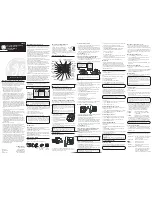
injury or even death.switch off the device at refuelling points such as near gas
pumps at service stations.Observe restrictions on the use of radio equipment on
fuel depots, storage, and distribution areas;chemical plants; or where blasting
operations are in progress. Areas with a potentially explosive atmosphere are often,
but not always, clearly marked.They include below deck on boats , chemical
transfer or storage facilities and areas where the air contains chemicals or particl es
such as grain, dust,or metal powders.you should check with the manufacturers of
vehicles using liquefied petroleum gas (such as propane or butane )to determine if
this device can be safely used in their vicinity.
Emergency calls
Important:
This device operates using radio signals, wireless networks,
landlins networks,and user-programmed functions. If your device supports
voice calls over the internet (internet calls ),activate both the internet calls and the
cellular phone.The device will attempt to make emergency calls over both
The cellular networks and through your internet call provider if both are activated.
Connections is all conditions cannot be guaranteed.you should never rely solely on
any wireless device for essential communications like medical emergencies.
To make an emergency call:
1.
If the device is not on, switch it on. Check for adequate signal
strength.Depending on your device,you may also need to complete the
following:
z
Insert a SIM card if your device uses one
z
Remove certain call restrictions you have activated in your device.
z
Change your profile from offline or flight profile mode to an active profile.






































